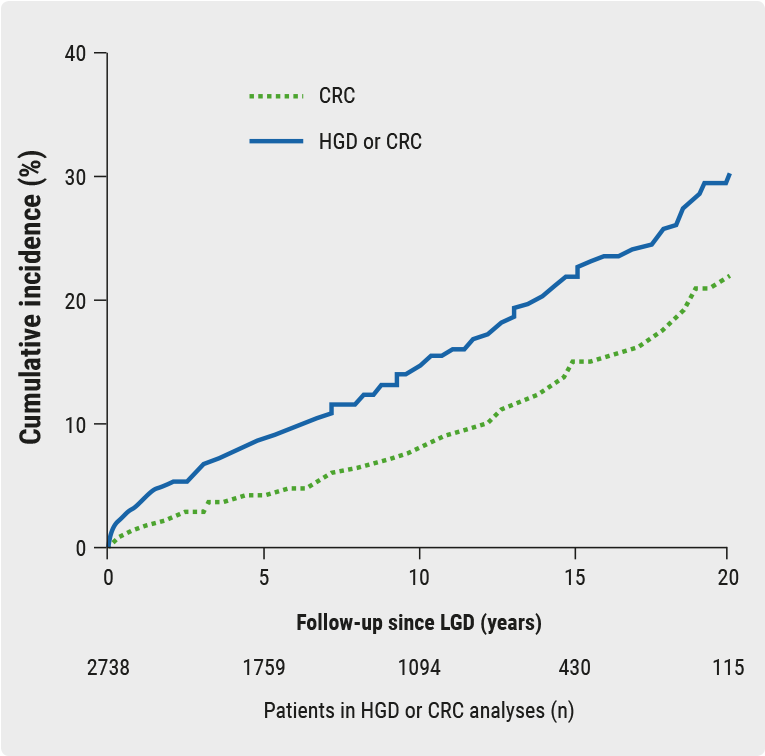Although anti-TNF antibodies have been shown to be effective in many CD patients, a relevant subgroup does not respond to this therapy [14]. The underlying molecular mechanisms associated with endoscopic resistance to anti-TNF therapy were determined by Schmitt et al. [15].
In this study, mucosal and blood cells from 197 CD patients were isolated prior to and during anti-TNF therapy. CD patients responding to anti-TNF therapy displayed a significantly higher expression of TNF receptor 2 (TNFR2) on mucosal T cells than non-responders prior to initiation. However, the expression of IL-23 receptor (IL23R) was not increased. Array analyses of differentiated gene regulation profiles in intestinal biopsies were compared in endoscopic non-responding CD patients and responders during ongoing anti-TNF therapy.
Within the cohort of CD susceptibility genes, there was a significant upregulation of genes that are associated with IL23R-dependent signalling pathways in anti-TNF non-responders. Apoptosis-resistant TNFR2+IL23R+ T cells were significantly more expanded in anti-TNF non-responders compared with responders and expressed the gut-tropic integrins α4β7. These cells exhibited increased expression of IFN-γ, T-bet, IL-17A and RORγt compared with TNFR2+IL23R- cells, indicating a mixed Th1/Th17-like phenotype. Intestinal TNFR2+IL23R+ T cells were activated by IL-23 derived from CD14+ macrophages, which were significantly more present in non-responders than responders prior to anti-TNF treatment. Administration of IL-23 to anti-TNF-treated mucosal organ cultures led to the expansion of CD4+IL23R+TNFR2+ lymphocytes. There was no accumulation of CD4+TNFR2+ T cells that were negative for IL23R.
Functional studies demonstrated that anti-TNF-induced apoptosis in mucosal T cells is abrogated by IL-23. It was concluded that expansion of apoptosis-resistant intestinal TNFR2+IL23R+ T cells is associated with resistance to anti-TNF therapy in CD. IL-23 is centrally involved in mediating resistance to anti-TNF therapy in CD patients, thereby representing a suitable molecular target in patients refractory to anti-TNF therapy.
- Wils P, et al. Clin Gastroenterol Hepatol. 2016;14:242-50.
- Schmitt H, et al. OP012. ECCO 2018.
Posted on
Previous Article
« Early and significant effects with upadacitinib induction treatment Next Article
Overall manageable safety profile of tofacitinib in long-term use »
« Early and significant effects with upadacitinib induction treatment Next Article
Overall manageable safety profile of tofacitinib in long-term use »
Table of Contents: ECCO 2018
Featured articles
IBD diagnostics
IBD disease patterns and genetics
Novel treatment strategies
Efficacy and safety of biologics
Oncology in IBD
Surgery for IBD
Related Articles

May 28, 2018
Combining new drugs with different mechanisms
© 2024 Medicom Medical Publishers. All rights reserved. Terms and Conditions | Privacy Policy
HEAD OFFICE
Laarderhoogtweg 25
1101 EB Amsterdam
The Netherlands
T: +31 85 4012 560
E: publishers@medicom-publishers.com

